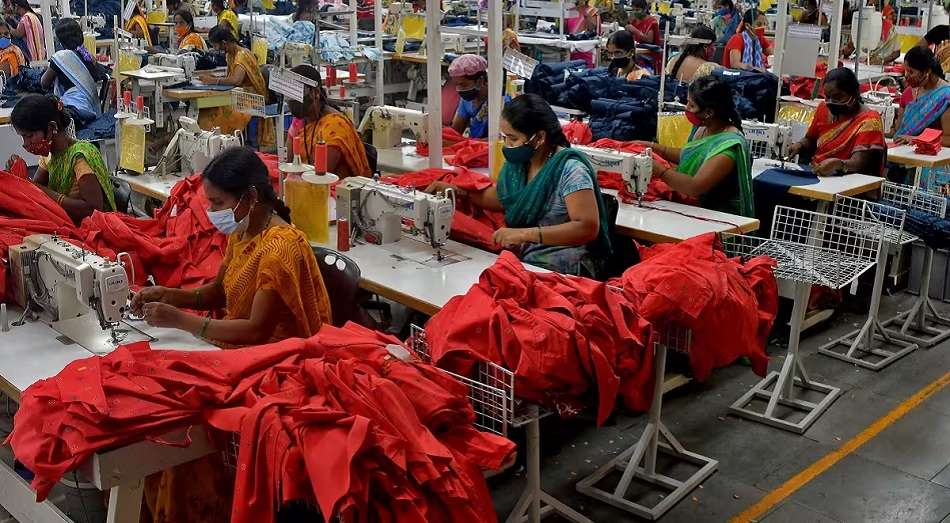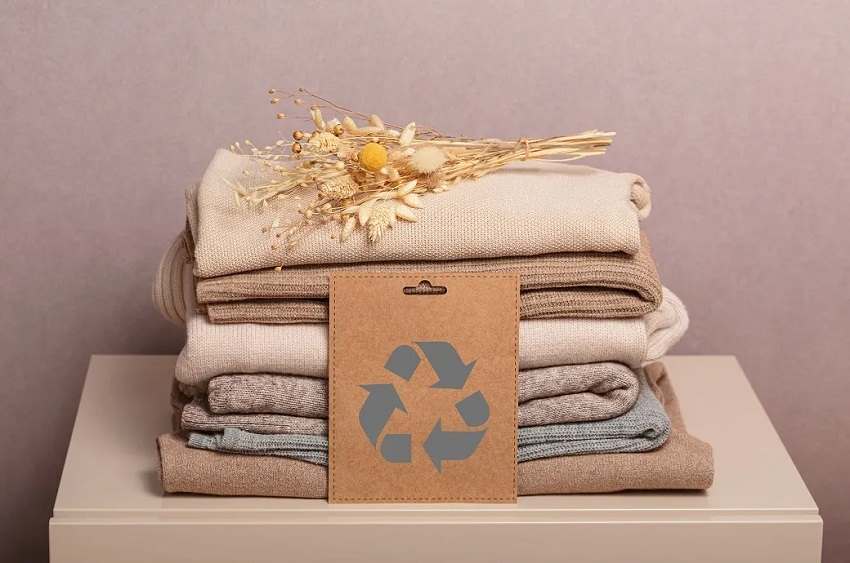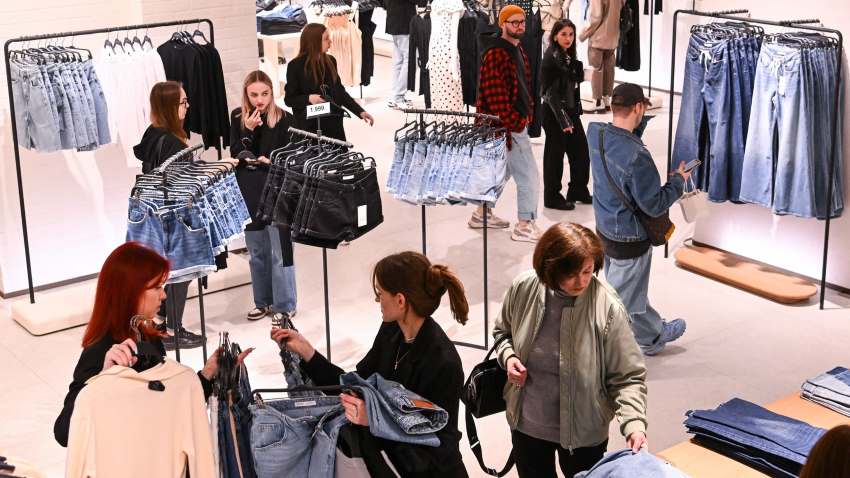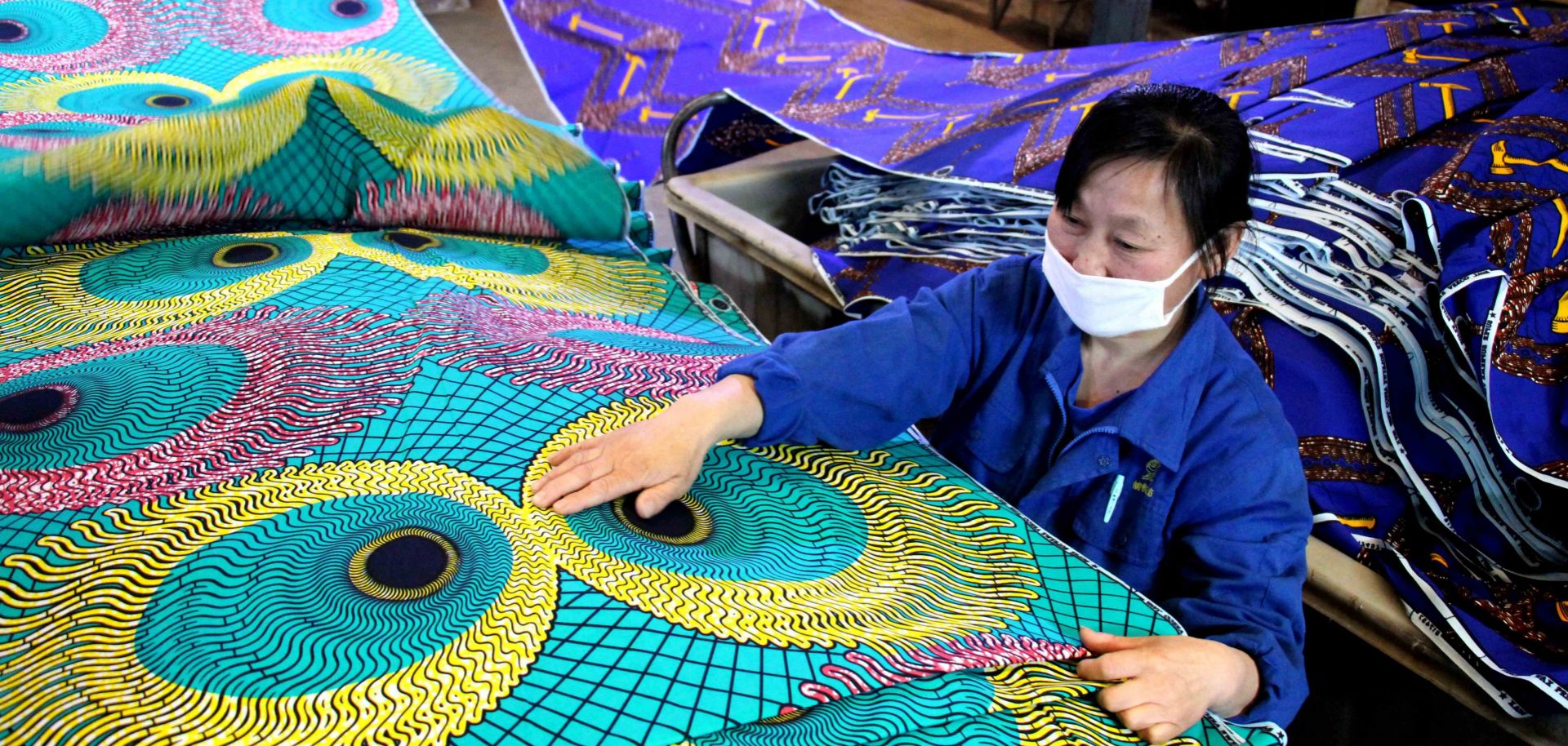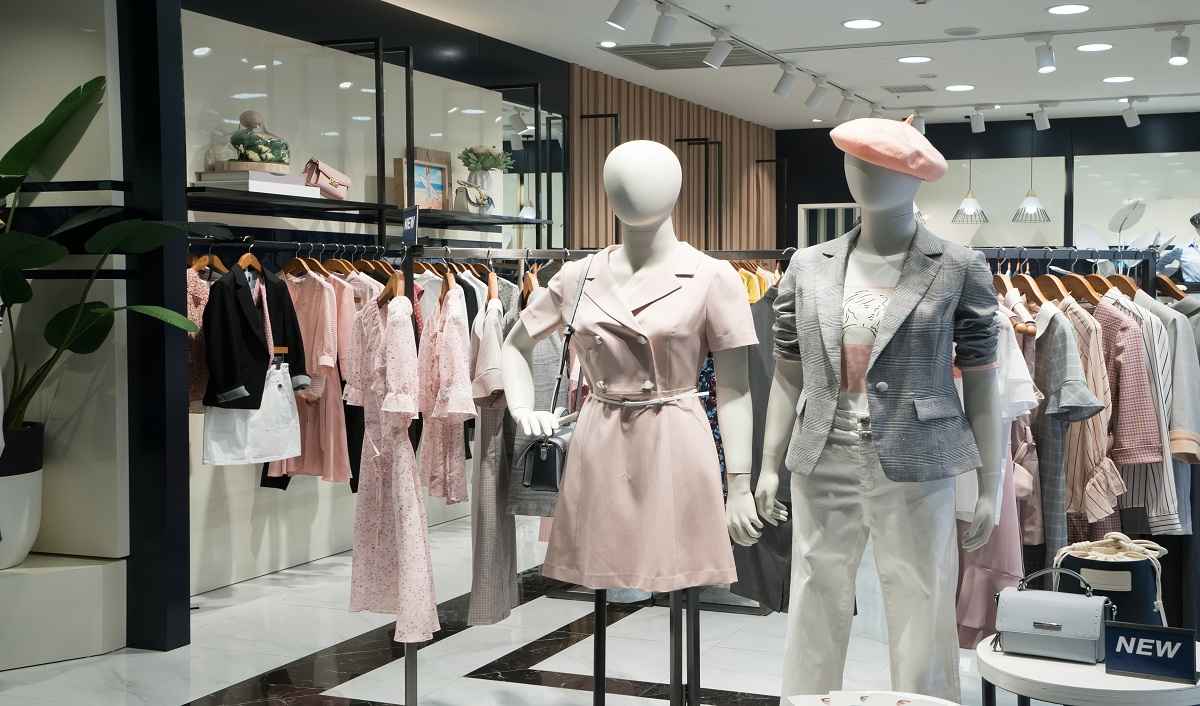FW
The Ministry of Industry has planned to resume restructuring program for the textile industry. Achmad Sigit Dwiwahjono, Director General of Chemical, Textile and Multifarious Industries, says after the evaluation, the restructuring program for textile machinery and equipment was very effective in encouraging the growth of the industry, especially in increasing utilization.
Some representatives of the Ministry of Industry visited China recently to explore cooperation related to the continuation of the textile machinery industry restructuring program. Sigit says before dismissed, the textile machinery restructuring program using funds from the state budget, in the future the government will seek other sources of funding that does not burden the state finances, one of them comes from China.
According to him, funding from the Bamboo Curtain country has borrowing interest cheaper than domestic commercial financing. Some of the financial institutions that are explored include China Development Bank (CDB) and Silk Road Fund, which is a financial institution formed by the Government of China. One of the conditions to be able to get finance from China is that the recipient must purchase a machine that is also produced by the country. The Ministry of Industry hopes that at least this year the restructuring program will continue with experiments for several companies first.
The need of the textile industry to replace the machines that are considered old is estimated at Rs 400 billion per year. In the previous restructuring program, the government provided a subsidy of 10 per cent of the investment value or the machine price and for each company a maximum of 5 billion.
in a tie-up with retail chains, Khadi has finally entered shopping malls in what is seen as an attempt to tap the middle-class market it has been losing to newbie Patanjali.
Last week, Khadi made a beginning through a tie-up with retailer Globus to launch Khadi Korner, a shop-in-shop concept, at an outlet in Noida. The plan is to move to Chennai, Varanasi and Ahmedabad later this month.
Next month, the Khadi & Village Industries Commission (KVIC) will go for a similar launch in Mumbai in tie-up with Cotton Bazaar. Discussions are also taking place with Shoppers Stop and Big Bazaar.
KVIC had stayed away from shopping malls as it did not have the financial clout to spend around Rs 2-5 lakh a month on leasing space. So, it strategised a different model where it will have a revenue-sharing arrangement with retailers, which could range between 10 per cent and 20 per cent of sales.
KVIC Chairman, V K Saxena analysed, "Gone are the days when loyal customers travelled long distances to reach Khadi Bhandars. Today, availability is one key focus area and we want to be available at the doorstep."
Saxena revealed that their initial sales numbers are promising. On Sunday, sales were estimated at around Rs 28,000, just a fraction of the over Rs 25 lakh that the flagship store in Delhi's Regal Building recorded.
Currently, they are offering garment and cosmetics but depending on the feedback more products could be added. Since the last few years, Ramdev's Patanjali, which was asking for a tie-up with KVIC, has ramped up its presence in shopping malls, especially through the franchisee route and has eaten into KVICs market for products such as spices and honey
Transparency Market Research in a study reports the need for better and smarter textiles to support evolving industrial applications that will encourage the introduction of enhanced textiles using innovative textile chemicals. From airbags to fire resistant textiles, top players in global textile chemicals market are focusing on enhancing their facilities and investing in R&D to cater to the evolving consumer demands.
Players such as The Dow Chemical Company, are launching antimicrobial technology that protects textiles against the growth of harmful bacteria. Given this scenario, companies will have to put in place strategies for meaningful mergers and acquisitions to grab more market share. This move will also help them add to their existing portfolio of products.
A TMR analyst notes, "Strengthening economies and rising agricultural activities, increasing healthcare infrastructure, expanding clothing industries, growing number of participants in the sporting activities, and other industries that employ skilled human resource are driving the demand for textiles, thereby augmenting the textile chemicals market."
The demand for textile chemicals will grow exponentially in the coming years due to their ability to enhance the characteristics of textiles by adding strength and versatility. The rise of the packaging industry is also expected to boost the global textile chemicals market in the near future.
The harmful effects of chemicals on the environment and to human health is a serious challenge the industry faces. The disposal of water from textile chemical industries into the local water bodies has created not just polluted water bodies but also a water shortage. Furthermore, the quality of the soil is being degraded by these chemicals, thereby creating a severe impact on the human life.
Despite many issues faced by industry the global textile chemicals market has a bright future. For example, the use of chemicals to add to the strength of the textiles will make textiles a notable option to replace conventional construction materials such as wood, concrete, and glass amongst others.
TMR analysts have estimated that the opportunity in the global textile chemicals market will be valued at US$ 29.15 bn by 2024 rising from US$ 21.02 bn in 2015. The steady growth of 3.7 per cent in this market from 2016 to 2024 will be attributable to the soaring demand for home furnishings. Asia Pacific holds the biggest share in the overall textile chemicals market in terms of volume.
Top apparel manufacturing and exporting companies from Ludhiana in Punjab have agreed to set up manufacturing units in Bihar post a meeting of their management with top state government officials recently. This initiative is projected to generate over 20,000 jobs. The company executives also met a delegation of the Bihar Chamber of Commerce and Industries.
It was reported that the Ludhiana delegation, comprising Harish Dua, president of Knitwear and Apparel Exporters Organisation and owner of KG Exports, Narinder Chugh of Million Exports, Rajat Sood of Oriental Dyeing and Pawan Garg of Worldwide Textiles Private Limited, met Bihar industries department Principal Secretary S Siddharth, Bihar Industrial Area Development Authority (BIADA) Managing Director RS Shrivastava and other officials recently.
These manufacturers supply to big international brands and designers in France, Germany and the US.
It may be noted that the state has earmarked a land tract of 115 acres in Bihta on the outskirts of capital Patna to set up an apparel and textiles park.
The Pakistan Readymade Garments Manufacturers and Exporters Association (PRGMEA) on Tuesday said the promised abolition of all duties on the import of cotton yarn would overwhelmingly enhance value-addition, leading to enhanced exports and reduced the trade deficit.
Ijaz Khokhar, Chief Coordinator PRGMEA, in a statement said, “The PM Shahid Khaqan Abbasi, in a recent meeting with PRGMEA, has assured us to pass directives to the textile division of the Commerce Ministry to move a summary to the Economic Coordination Committee (ECC) for removal of all duties and taxes on cotton fibber import.”
“We hope the PM will fulfil his promise of addressing all issues of apparel sector on a priority basis and a decision to this effect will be implemented at the earliest to provide level-playing to the value-added textile sector.
“The PRGMEA had requested the PM during his visit to the Sialkot Chamber of Commerce and Industry to do way with all the duties on cotton yarn import to help cut cost of doing business and bridge the gap between production and consumption.
“During the meeting the PM was also urged to restore the role of industrial associations in disbursement of duty drawbacks under the revised PM’s exports incentive package to ensure transparency,” he added.
Labour costs in Myanmar is expected to see a 33 per cent increase this year, and sourcing costs may also follow.
The country’s National Committee for Minimum Wage has agreed to set the daily salary wage for workers at 4,800 kyat ($3.55) up from the current 3,600 kyat ($2.66) that has been in place since 2013, and a 33 per cent hike.
This is based on an 8-hour work day, six days a week, garment workers in Myanmar will be earning a minimum wage of $85 a month.
Though the hike may seem significant percentage-wise, it comes in lower than the 55 per cent increase to 5,600 kyat ($4.14 a day, $99 a month) that workers and unions had been demanding. Of course the unions aren’t happy about it.
Secretary of the Cooperating Committee of Trade Unions (CCTU) and a former workers’ representative of Central Labour Dispute Arbitration Committee U Ye Naing Win was reported to have said, “We are not satisfied with the committee’s daily wages of K4800. We [workers] are asking for increase in wages since we are starving. They shouldn’t ask for a discount.”
The country’s Labour Union Federation, however, has objected to even raising the wage rate to 4,800 kyat, even though Myanmar’s Minimum Wages Act of 2013 calls for a review of wage rates every two years; which technically should have happened in 2015 and again in 2017.
For now, unions in Myanmar are demanding that the government consider the actual cost of living when evaluating an appropriate raise, especially in light of impending rental fee increases. Though the wage panel has set its rate, the committee will take suggestions and objections in the coming weeks and set a final figure within 60 days.
Other low-cost sourcing countries, like Mauritius, Mexico and Cambodia, have been increasing wages of late and correspondingly labour costs are set to climb this year.
Almost 70,000 people demanded that Armani and Primark reveal where they make their clothes as they called upon major garment brands and retailers Armani, Primark, Urban Outfitters, Forever 21 and Walmart to make transparency a part of their New Year’s resolutions and publicly disclose the factories that produce their clothes.
Throughout January, activists will deliver golden boxes of signatures to luxury brand Armani and cost-cutter Primark in major European cities. Other targeted brands can also expect to find signatures left on their doorsteps. The golden signature gift boxes are the culmination of the global #GoTransparent campaign, led by Human Rights Watch, Clean Clothes Campaign and International Labour Rights Forum. The campaign launched a minimum global standard of transparency for the garment sector - the "Apparel And Footwear Supply Chain Transparency Pledge" and convinced seventeen brands to commit to publish information on the factories they source from, including addresses and numbers of workers.
The #GoTransparent campaign specifically targeted the five brands Armani, Primark, Urban Outfitters, Forever 21 and Walmart, which are considered to be among the most secretive about their supply chain data and who refused to commit to more transparent supply chains by signing the pledge. The information that the “Transparency Pledge” is meant to reveal is vital for workers and activists to be able to alert brands to labour rights violations in their supply chains. Transparency in supply chains will help prevent such dramatic gestures as needed after the Rana Plaza blaze in Bangladesh in 2013, when workers and activists had to re-enter the ruins of the building to search for brand labels. They had to risk their lives to establish who should be held responsible for the tragedy.
The five targeted brands appear to be out of sync with the growing trend towards more transparency in the garment industry. Ben Vanpeperstraete of Clean Clothes Campaign decries the non-cooperation, “Any brand that refuses to share information about their supply chain should be a huge red flag for consumers. What are these brands hiding? Do they even know where their clothes are coming from? If brands are taking the necessary steps to prevent labour abuses in their supply chains, then they should eagerly want to share detailed information about the factories and workers who make their clothes with the public.”
The 17 brands that signed the “Transparency Pledge” are Adidas, Asics, Asos, C&A, Clarks, Cotton On Group, Esprit, G-Star RAW, H&M Group, Hanesbrands, Levis, Lindex, New Look, Next, Nike, Patagonia and Pentland Brands.
Le Tien Truong, General Director of the Vietnam National Garment and Textile Group (Vinatex) disclosed, the country textile and garment industry has targeted a year-on-year 10 per cent increase in export to $34 billion in value terms in 2018 in spite of issues in markets at home and abroad. He reported Vinatex’s performance at a meeting in Hanoi. Vinatex reported its total revenue in 2017 was 45.55 trillion VND ($2.02 billion), out of which domestic sales contributed to 10.39 trillion VND, which is 22.8 per cent of the total revenue. The pre-tax profit in 2017 reached 1.43 trillion VND, the group disclosed. The organisation has targeted a revenue of 48.5 trillion VND and a pre-tax profit of 1.45 trillion VND for 2018, a Vietnamese news agency was said to have reported.
As Vietnam’s textile and garment industry will face more competition this year, Truong urged the industry to continue to invest in technology to create stability, sustainability and efficiency in production. Last year, the country exported textile and garments valued at $31 billion, higher than its target of $30 billion. Major markets such as the US, the EU, Japan and the Republic of Korea maintained good growth while there were breakthroughs in exports to other markets such as China, Russia and Cambodia, noted Truong. The Korean market grabbed fourth place in 2017, close to the Japanese market, reaching an export value of $2.7 billion. Exports to China last year was $3.2 billion, the same as the export value to Japan. This year, the Ministry of Industry and Trade will withdraw 53.5 per cent of its shares in Vinatex as part of their Prime Minister’s divestment initiatives.
UBM Fashion, the international leader in fashion tradeshows, has partnered Council of Fashion Designers of America (CFDA) for an exclusive partnership designed to support American fashion designers, brands and promote the growth of emerging talent and the fashion industry as a whole. As a part of the partnership, CFDA and UBM Fashion will create programs that help talented emerging designers bridge the gap between compelling design and commercial success.
Key programs will include enhanced retailer matchmaking services, special events and cost assistance at UBM Fashion tradeshows for new CFDA members. The partners will also work together on educational and mentorship programs created to help CFDA members in areas such as marketing, sales, distribution, manufacturing and finance.
UBM Fashion and the CFDA will also collaboratively coordinate the timing of New York Fashion Weeks and related Market weeks for men's and women's fashion. Further, PROJECT will present 4 participating Designers for the first time during NYFW: Men's on February 5th at Skylight Modern. Steven Kolb, President and CEO of the CFDA exults, "The CFDA is always looking for partnerships that help designers reach new retailers and consumers. UBM Fashion's portfolio of programs and extensive contacts with retailers both large and small will help fuel the industry's growth." The partnership will launch in January 2018 and focus on UBM Fashion's dual-gender show PROJECT and its advanced contemporary event Coterie, as well as the recently launched MAGIC Japan.
The United States of America has improved its denim jeans imports by 1.78 per cent collectively in men and women categories from January to November 2017 period. According to recent data the largest importer of apparels in the world maintained the pace of denim jeans’ demand even after observing consumers’ switch to blended apparels. Though, the country witnessed a fall of 0.60 per cent in volume of men and boys (MB) denim jeans imports, it posted a growth of 4.64 per cent in women and girls (WG) category.
On the other hand, as against the $ 1.55 billion (down 2.71 per cent) import values in MB denim jeans, the US imported jeans worth $ 1.39 billion (up by 2.20 per cent) in WB category. Mexico has emerged as the largest jeans exporter to the US as far as MB category is concerned. It exported denim jeans to the US worth $583.45 million with a drop of 9.08 per cent.
Further, the Latin American country has not contributed much in the WG denim jeans exports to the US. Mexico just fetched US worth $82.92 million in the category and ended up at the 5th spot in the tally. Bangladesh grabbed the second spot with the export value of $ 235.25 million (in MB category) with a notable surge of 10.95 per cent when compared to the export value of $212 million during the prior-year period. It also marked a commendable growth of 5.69 per cent with export values of $180.82 million in denim jeans exports to the US.

